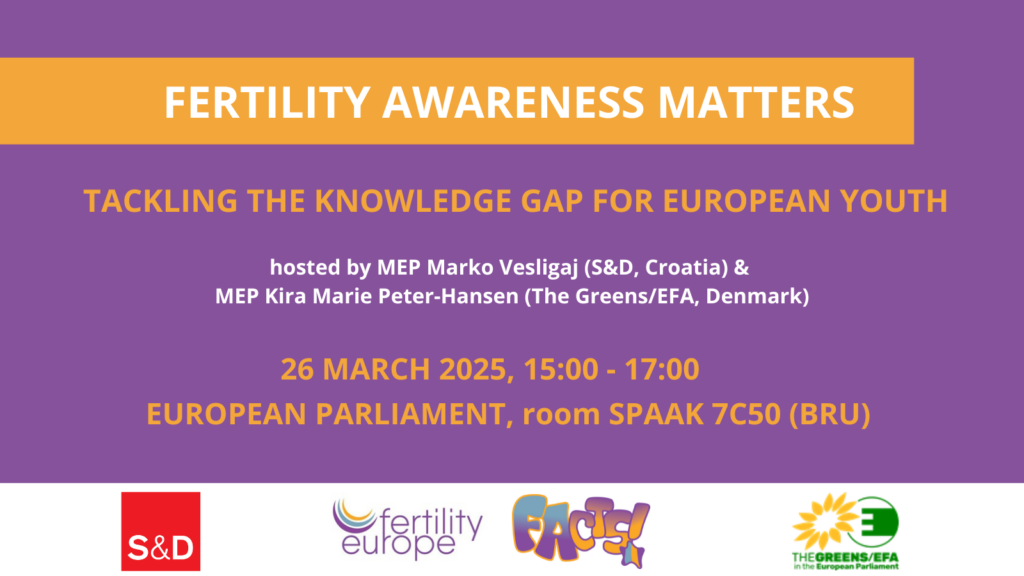
Welcome to “Fertility Awareness Matters: Tackling the Knowledge Gap for European Youth”!
We were thrilled to host the FActs! event at the European Parliament, a crucial step in ensuring that young people across Europe are equipped with the knowledge they need to make informed decisions about their future.
Education is the foundation of empowerment, and while we have made significant progress in education, there are still missing pieces in this picture. We are here to initiate the process of completing it.
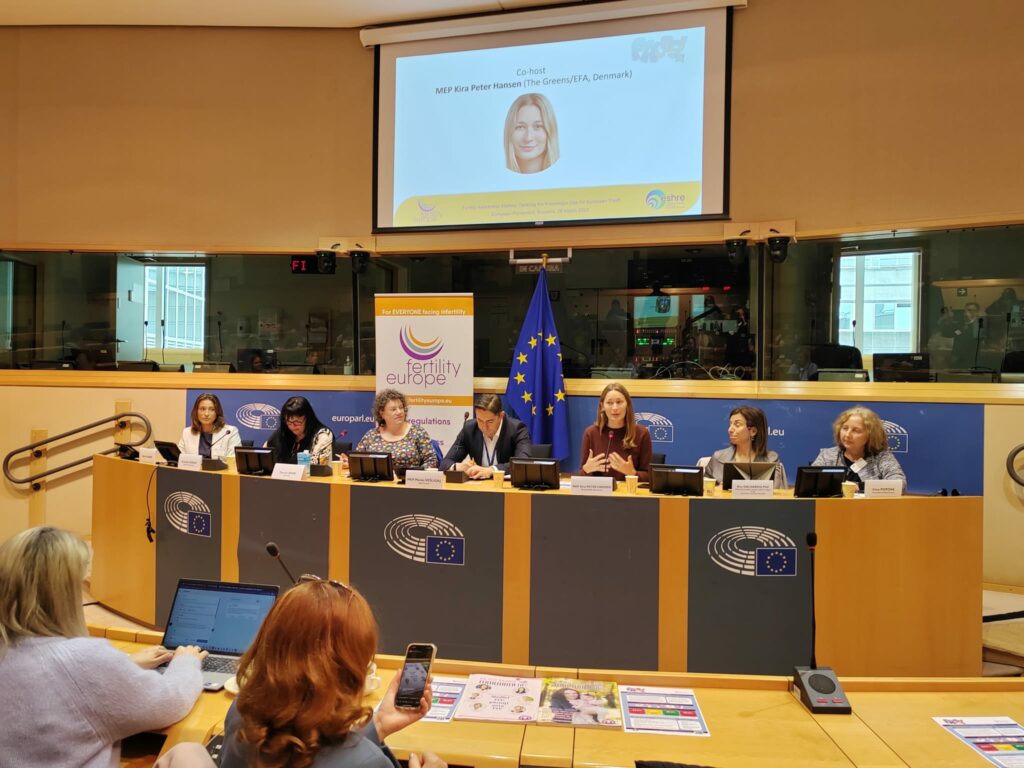
This event was hosted by MEPs MEP Marko Vesligaj (S&D, Croatia), and MEP Kira Marie Peter-Hansen (The Greens/EFA, Denmark), who share our commitment to integrating fertility awareness into comprehensive sexuality education. With prominent speakers offering diverse perspectives, we explored the current state of fertility awareness and the gaps that still need to be addressed.
“Comprehensive sexuality education must contain evidence-based fertility education as it is key to ensure that all students receive accurate and age-appropriate information about their reproductive health. This issue has to be at the forefront when we talk about priorities in educational resources but it also can’t be achieved without developing and implementing specialised training to equip teachers and healthcare providers with the knowledge to effectively deliver fertility education. As the European Parliament’s Rapporteur for the new Gender Equality Strategy, this will most certainly be one of the areas I focus on and I am glad we gathered experts and relevant stakeholders from across Europe today in the EP to discuss these issues. As the EU, we can do a lot on this to ensure that young people have all the resources and tools needed to make informed decisions.” said MEP Marko Vsligaj.
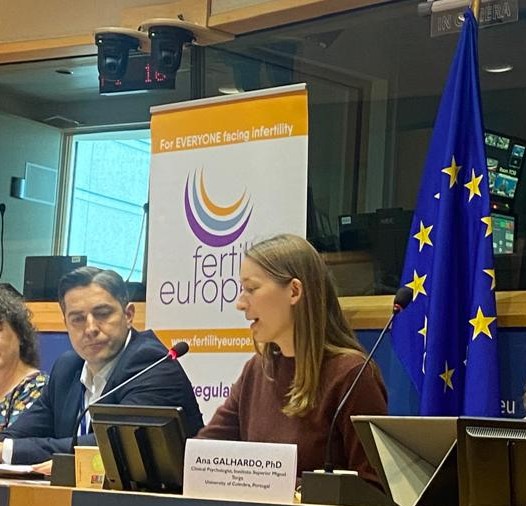
“Fertility is not just a personal concern—it’s a critical public health issue. Young people deserve the knowledge to make informed choices about their future. It’s time for policymakers to take action and ensure they have tools to safeguard their sexual and reproductive health and rights. Fertility education is key to empowering young people to make informed choices about their future. Let’s ensure they have access to the knowledge and resources they deserve.” added MEP Kira Marie Peter-Hansen in opening remarks.
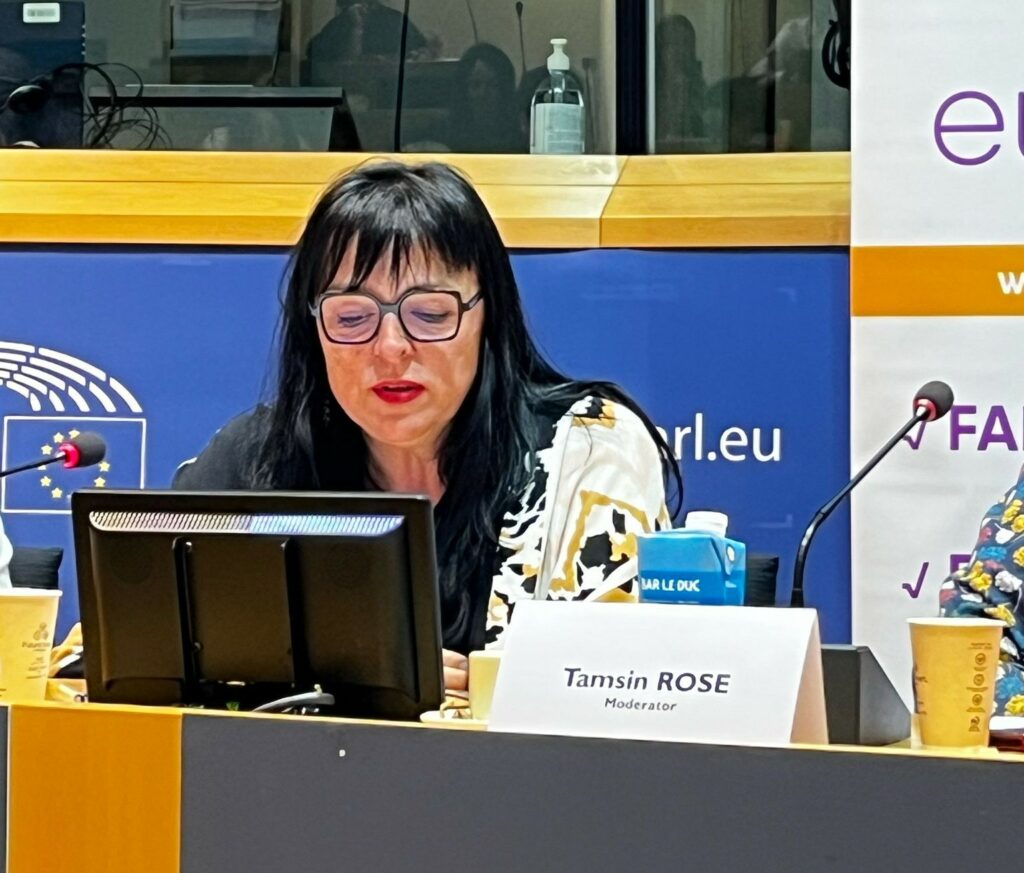
Klaudija Kordic, the Chair of Fertility Europe, opened the event with powerful words:
“Over the years, working with people facing infertility, we kept hearing the same thing: ‘I wish someone had told me sooner.’ That’s why we started FActs!—a project about fertility, knowledge, and education. So that nobody has to ever again say, ‘I wish I had known.“
Mind the Gap – The Reality of Fertility Awareness in Europe
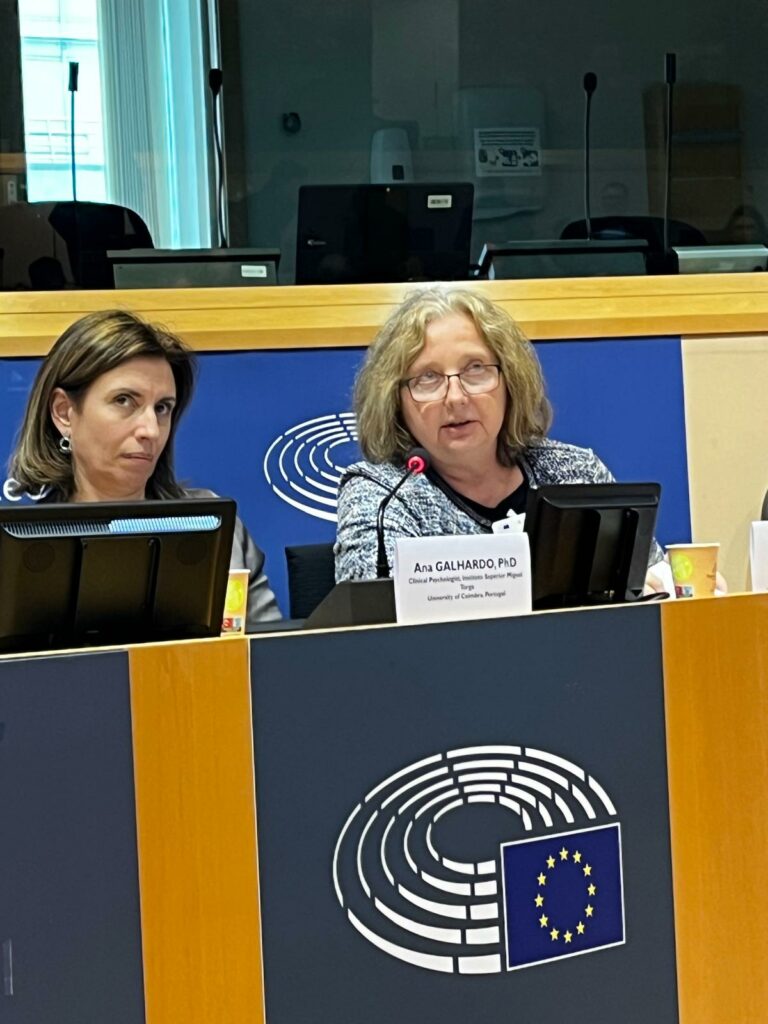
Irina Popova, the Vice Chair of Fertility Europe, presented on the importance of fertility awareness and the need to close the knowledge gap among European teens, speaking about the Fertility Europe and ESHRE joint project Facts! She highlighted the important facts:
- 1 in 5 people in the EU faces infertility.
- The average age of first-time mothers in the EU is 29.6 years.
- Fertility awareness empowers both men and women to make informed reproductive decisions, supporting gender equality in family planning.
- Educating teenagers about reproductive health equips them to manage their choices later in life.
The FActs! study, based on data from 3,803 gameplay results across five European countries, revealed significant gaps in young people’s understanding of reproductive health. A closer look at Bulgaria, Finland, Norway, Poland, and Portugal highlighted cross-country trends demonstrating how awareness of fertility, its lifespan and biological changes over time are critically underrepresented in European education systems. This lack of knowledge has real-life consequences for young people’s reproductive health and future choices.
“Young people today are actively seeking information about their reproductive health, yet they face a landscape filled with misinformation and gaps in education,” said Irina Popova
We had a fantastic opportunity to hear the voice of the young generation to whom the whole project was addressed. Keira LaHart is an 18-year-old student from Norway. She was a member of the Norwegian focus group who had tested and reviewed FActs! before it was officially launched. Not only did she provide her feedback on FActs! but she also shared how much she had learnt from it and what an amazing conversation starter it was for her and her peers.
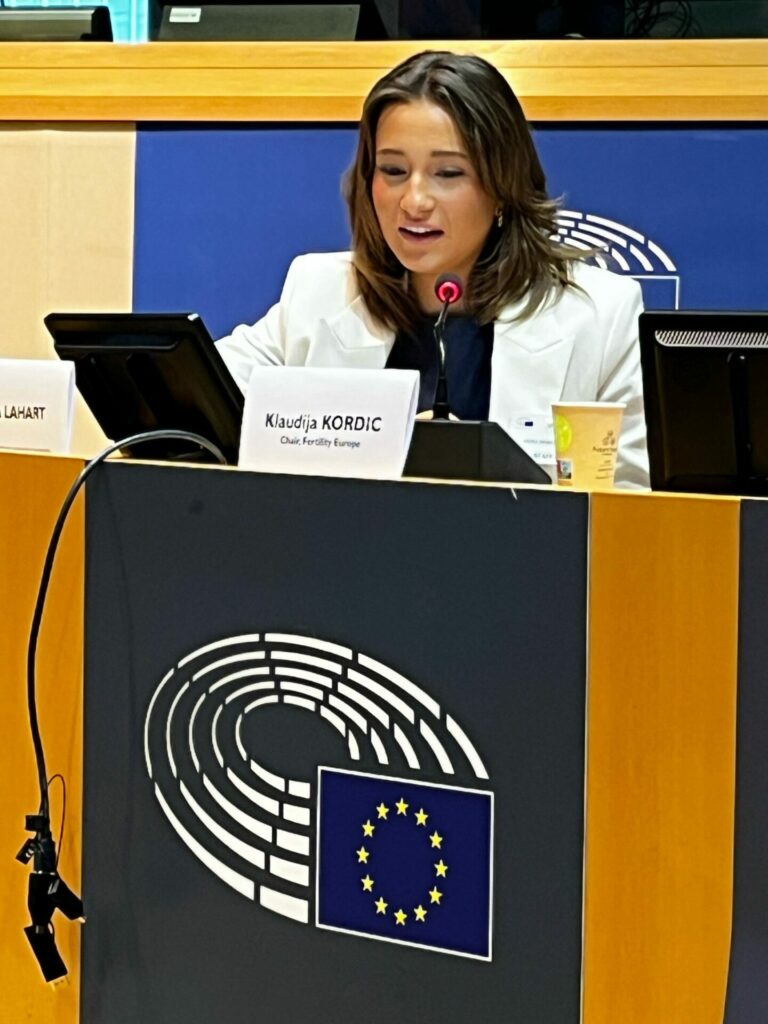
“When my friends and I talk about the future, we usually discuss college, careers, and travel. But we never really talk about having a family. In school, we learn how not to get pregnant – but not much about fertility itself. FActs! changed it.” – admitted Keira
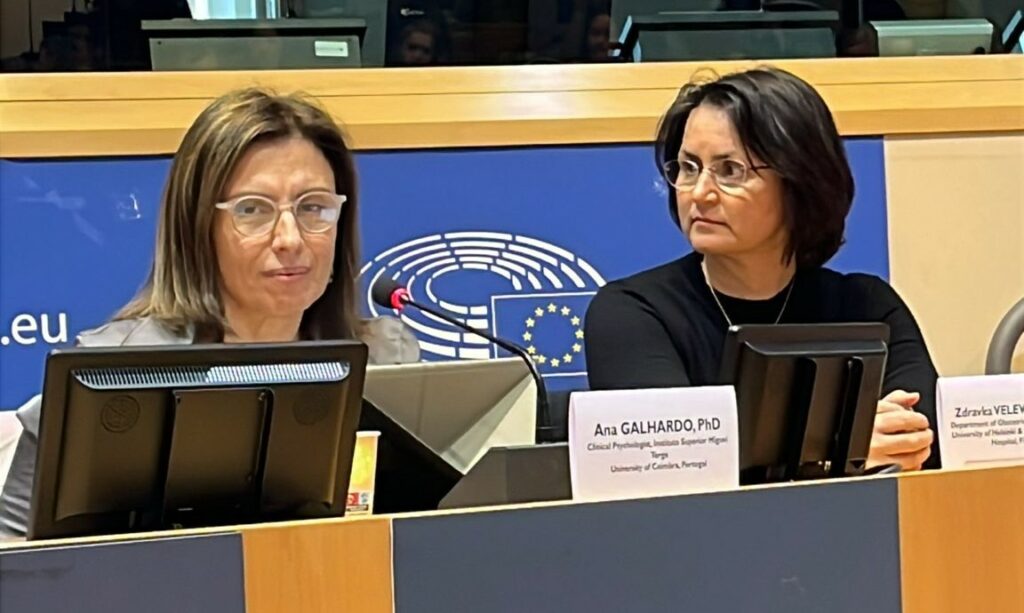
Our next speaker, Ana Galhardo PhD, academic and clinician, Instituto Superior Miguel Torga, University of Coimbra, CINNEIC seconded Irina’s statement:
“Fertility education isn’t just necessary – it’s WANTED! Young people are curious and eager to learn about reproductive health, including the crucial topic of fertility. It’s our responsibility to provide them with the knowledge they need to make informed choices about their future.“
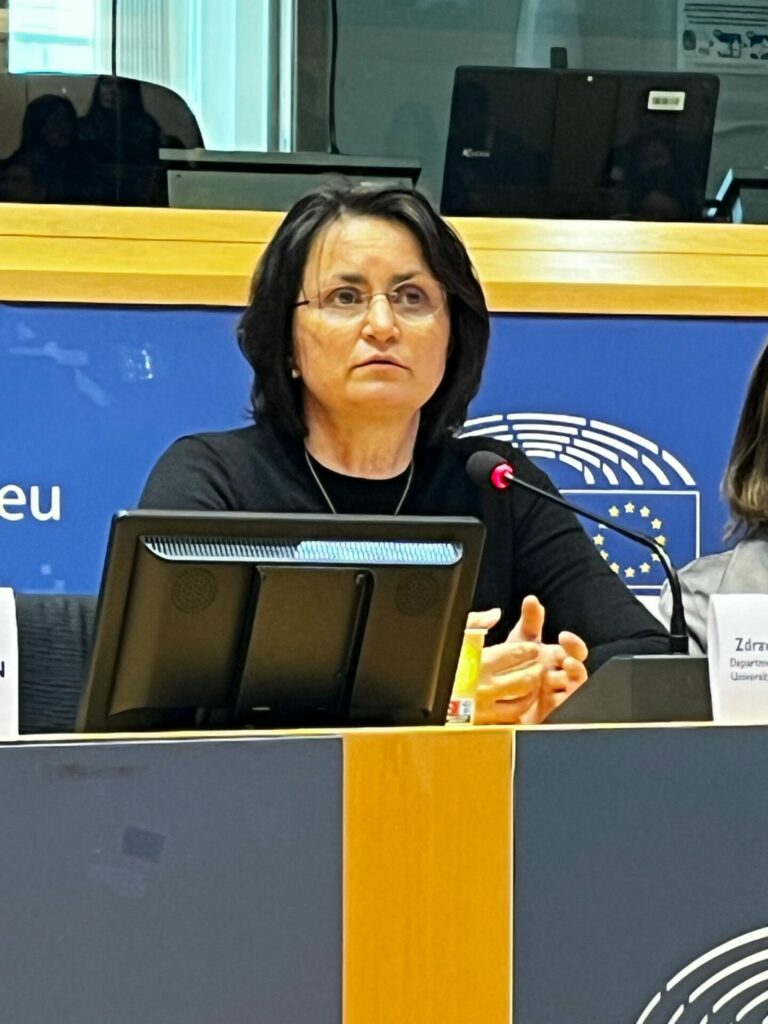
Dr Sara Zdravka Veleva, MD, PhD, of the University and Helsinki University Hospital, during her speech, presented some staggering figures about infertility: 15-20% of couples struggle with infertility, but fertility treatments are not always accessible for those who need them. She stressed that there is often a significant financial barrier as fertility treatments are expensive (up to 25% of a household’s annual income in some countries!).
“We need better fertility education to prevent unnecessary struggles later in life. Awareness is key to making informed, autonomous life choices. Yet over half of FActs! game players had no idea fertility declines sharply after 35 for women and 40 for men and around 30-40% of teens don’t know STIs can cause infertility” she said.
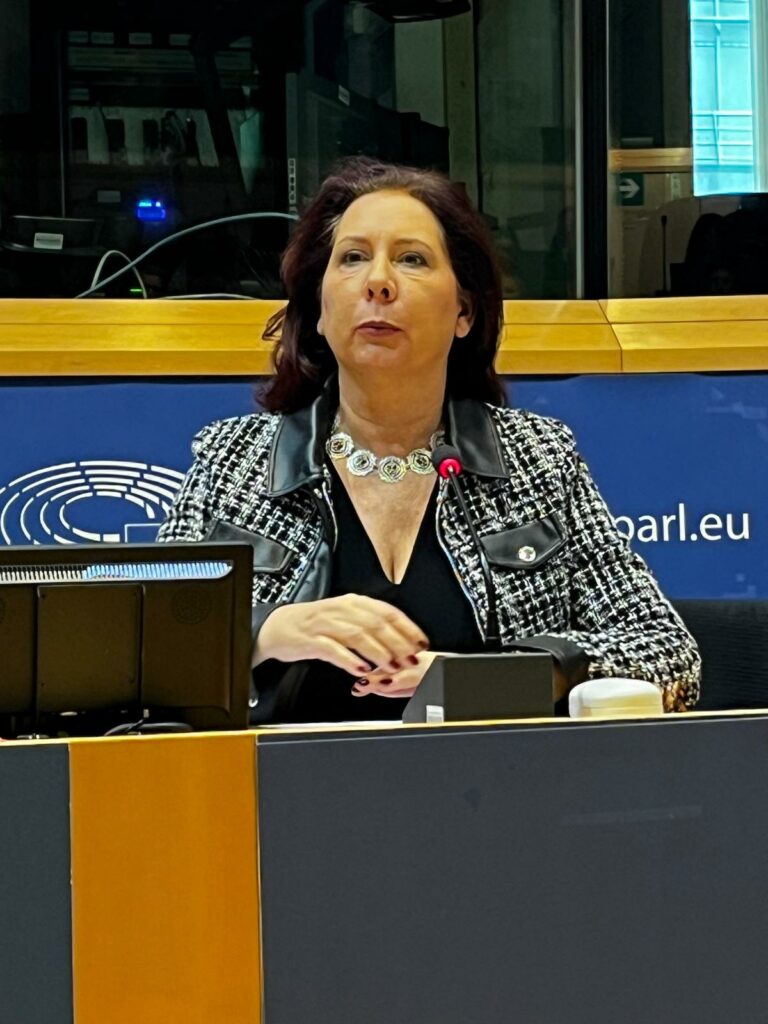
Birgit Van Hout, Director of the UNFPA Representation to the EU, delivered a powerful message on empowering young people with knowledge and essential life skills, which is key to ensuring they can make informed choices about their future. Access to accurate information is a fundamental right, helping to close the knowledge gap, reduce risky behaviours, and eliminate the stigma surrounding reproductive health. To achieve this, we need evidence-based Comprehensive Sexuality Education (CSE) that is tailored, culturally and linguistically sensitive, rights-based, and scientifically accurate. FActs! presents a unique opportunity to bring this vision to life, providing young people with the tools they need while fostering peer-to-peer education, a powerful and effective way to engage and inform youth. By investing in education that is inclusive and accessible, we take a crucial step toward reducing inequalities and ensuring every young person has the chance to make informed, confident choices about their reproductive health and future.
To conclude the event, the Fertility Europe Chair, Klaudija Kordic, once more took it to the floor with powerful closing remarks.
“Across Europe, young people are growing up without essential fertility knowledge. This isn’t just a knowledge gap – it’s a fairness gap. Fertility awareness must be recognised as part of gender equality, health equity, and reproductive autonomy.”
To provide a deeper understanding of these findings, we have prepared a clear and visually engaging overview of the FActs! Information and selected findings.
FActsFertility_infograph_FINAL-1Call to Action – the time is now!
As the final highlight of the event, we will introduce a Call to Action, urging all stakeholders and policymakers to take decisive steps toward ensuring fertility awareness becomes an essential part of youth education.
CALL-TO-ACTION-draft-Empowering-young-people-with-comprehensive-fertility-education-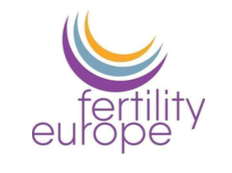
Pingback: Spring Meeting 2025 in Brussels – A Dynamic Gathering for Fertility Europe - Fertility Europe